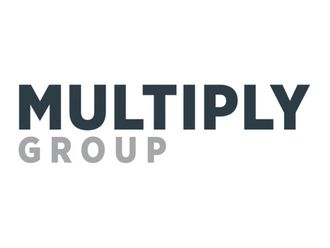Hong Kong
The euphoria around Chinese fintech listings is starting to wane.
Online lender PPDAI Group Inc raised $221 million after pricing its US initial public offering below the bottom end of a marketed range, people with knowledge of the matter said Friday. Rival Qudian Inc fell below its offer price the week after its October debut in New York, then bounced back, only to see its stock drop 7.4 per cent over the past two days.
PPDAI priced its offering a week after news that Chinese regulators are considering a crackdown on the country’s cash microlenders in response to claims that some have charged excessive interest rates. The initial public offering of Qudian helped trigger the regulator’s review of the sector, people with knowledge of the matter said earlier this month.
“One of the things that you’re seeing pretty clearly is the pullback of the risk appetite for these types of lenders,” Christopher Balding, associate professor at Peking University HSBC School of Business, said by phone Friday. Chinese regulators are right to be concerned about the “very rapid run-up in consumer lending,” he said.
Borrowing Rates
PPDAI priced its sale of 17 million American depositary shares at $13 apiece, after marketing them at $16 to $19 each, the people with knowledge of the matter said, asking not to be identified because the information is private. The company didn’t immediately respond to an email seeking comment. Its shares are expected to begin trading Friday in the US, according to terms for the deal obtained by Bloomberg earlier.
While Chinese law already limits lending rates to 36 per cent annually, regulators are considering drafting rules to specify the cap applies to the cash microlending sector, people with knowledge of the matter said this month. In its IPO prospectus, PPDAI said total borrowing costs for some of its loan products exceed that level after adding in transaction fees.
PPDAI says it believes it’s in compliance with Chinese regulations, as the actual interest rate it charges is no more than the official ceiling. It warned in its listing documents that there’s no certainty local courts will take the same interpretation.
Retail Demand
Investor reception for PPDAI was a sharp change from other recent deals involving Chinese fintech firms, such as the listing of online insurer ZhongAn Online P & C Insurance Co. The company priced its $1.5 billion Hong Kong IPO in late September at the top of a marketed range, after local retail investors subscribed for nearly 400 times the amount of stock they were offered.
ZhongAn shares have risen 30 per cent from their IPO price through Thursday, outpacing the 5.4 per cent gain in the Hang Seng Index over the same period.
PPDAI isn’t the only Chinese fintech provider lining up to raise funds from the equity market. Fenqile, a Chinese online shopping mall that lets users pay in instalments, has been planning a $600 million US IPO, people with knowledge of the matter said earlier. Quant, which generates credit ratings and facilitates loans, and personal finance app provider Wacai have also been considering US listings.
“The sentiment is different now,” said Chen Shujin, a Hong Kong-based analyst at Huatai Securities Co. “This business model is getting more attention after the listing of Qudian, but at the same time, people are a lot more aware of the risks.”












